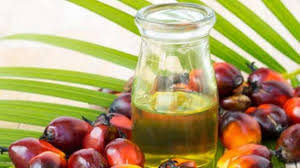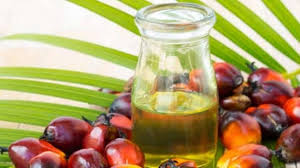
The government of Indonesia announced earlier this week that it will reimpose a domestic sales restriction for palm oil, a day after the world's largest producer of the key edible oil reversed an export ban.
Since November, President Joko Widodo's government has reversed key palm oil policies. The late-April export embargo, which was implemented in an attempt to reduce rising domestic cooking oil prices, stunned global edible oil markets and enraged farmers as their product prices plunged.
Palm oil, which is used in everything from margarine to shampoo, accounts for a third of the global vegetable oil market, with Indonesia supplying over 60 per cent of it.
Even though the price of bulk cooking oil remained much over the government's objective of 14,000 rupiah (96 cents) per litre, Jokowi, as the president is known, indicated on Thursday that the three-week-old restriction would be lifted next week.
Airlangga Hartarto, Indonesia's Economy Minister, announced on Friday that the government will impose a Domestic Market Obligation (DMO) on palm oil to ensure that 10 million tonnes of cooking oil remain in the country.
"The trade ministry will determine the size of the DMO that must be met by each producer and the mechanism to produce and distribute cooking oil to the communities," the coordinating minister for economic affairs told a virtual briefing.
Bulog, the state's food procurement agency, will be tasked with establishing a cooking oil buffer supply, he said. In announcing the resumption of exports, Jokowi said he expected cooking oil prices to drop toward the objective and that authorities would keep a tight eye on supplies.
In January, the government imposed a DMO of 20 per cent of enterprises' anticipated exports, which was raised to 30 per cent in March before being scrapped in favour of greater export levies.
Indonesia is the largest exporter of crude and refined palm oil, accounting for over 55 per cent of total exports, with Malaysia accounting for over 30 per cent.
Indonesia is the largest exporter of crude and refined palm oil, accounting for over 55 per cent of total exports, with Malaysia accounting for over 30 percent.
According to Airlangga, the prohibition has helped to increase monthly cooking oil stock to 109 per cent of monthly demand from 33 per cent in March, as well as drop the average price of bulk cooking oil from 19,800 rupiah per litre to 17,000 rupiah per litre as of Thursday.
"These factors suggest that ... the issues that preceded the ban have yet to be fully resolved, including distribution and hoarding, which have been cited as contributing to soaring domestic cooking oil prices," Nomura economists said.
Following the decision to relax the embargo, Maybank analyst Ong Chee Ting predicted that international crude palm oil (CPO) prices will fall.
"As for international buyers, the availability of Indonesian palm oil will somewhat pressure international CPO price. Overall, the lifting of the export ban is a relief to Indonesian-based growers," Ong said in a note.
Protests against the export prohibition were held by Indonesian farmers earlier this week. Gulat Manurung, chairman of the Indonesian smallholders association APKASINDO, stated in a statement that the local price of palm fruits had fallen by roughly 70% since the ban was imposed.
"The export ban has shown Indonesia how important palm oil is for the country," Gulat said.
The lifting of the restriction brought relief to farmers and industry groups. The Indonesia Palm Oil Association anticipates no difficulty in meeting the DMO due to substantial domestic production, according to secretary general Eddy Martono.
As the market processed the DMO news, Malaysian benchmark palm oil contracts dipped approximately 2 per cent before rebounding to gain more than 3 per cent.
The Indonesian rupiah advanced by 0.47 percent, while the Jakarta stock index increased by 1.75 per cent.
(Source:www.businesstoday.in)
Since November, President Joko Widodo's government has reversed key palm oil policies. The late-April export embargo, which was implemented in an attempt to reduce rising domestic cooking oil prices, stunned global edible oil markets and enraged farmers as their product prices plunged.
Palm oil, which is used in everything from margarine to shampoo, accounts for a third of the global vegetable oil market, with Indonesia supplying over 60 per cent of it.
Even though the price of bulk cooking oil remained much over the government's objective of 14,000 rupiah (96 cents) per litre, Jokowi, as the president is known, indicated on Thursday that the three-week-old restriction would be lifted next week.
Airlangga Hartarto, Indonesia's Economy Minister, announced on Friday that the government will impose a Domestic Market Obligation (DMO) on palm oil to ensure that 10 million tonnes of cooking oil remain in the country.
"The trade ministry will determine the size of the DMO that must be met by each producer and the mechanism to produce and distribute cooking oil to the communities," the coordinating minister for economic affairs told a virtual briefing.
Bulog, the state's food procurement agency, will be tasked with establishing a cooking oil buffer supply, he said. In announcing the resumption of exports, Jokowi said he expected cooking oil prices to drop toward the objective and that authorities would keep a tight eye on supplies.
In January, the government imposed a DMO of 20 per cent of enterprises' anticipated exports, which was raised to 30 per cent in March before being scrapped in favour of greater export levies.
Indonesia is the largest exporter of crude and refined palm oil, accounting for over 55 per cent of total exports, with Malaysia accounting for over 30 per cent.
Indonesia is the largest exporter of crude and refined palm oil, accounting for over 55 per cent of total exports, with Malaysia accounting for over 30 percent.
According to Airlangga, the prohibition has helped to increase monthly cooking oil stock to 109 per cent of monthly demand from 33 per cent in March, as well as drop the average price of bulk cooking oil from 19,800 rupiah per litre to 17,000 rupiah per litre as of Thursday.
"These factors suggest that ... the issues that preceded the ban have yet to be fully resolved, including distribution and hoarding, which have been cited as contributing to soaring domestic cooking oil prices," Nomura economists said.
Following the decision to relax the embargo, Maybank analyst Ong Chee Ting predicted that international crude palm oil (CPO) prices will fall.
"As for international buyers, the availability of Indonesian palm oil will somewhat pressure international CPO price. Overall, the lifting of the export ban is a relief to Indonesian-based growers," Ong said in a note.
Protests against the export prohibition were held by Indonesian farmers earlier this week. Gulat Manurung, chairman of the Indonesian smallholders association APKASINDO, stated in a statement that the local price of palm fruits had fallen by roughly 70% since the ban was imposed.
"The export ban has shown Indonesia how important palm oil is for the country," Gulat said.
The lifting of the restriction brought relief to farmers and industry groups. The Indonesia Palm Oil Association anticipates no difficulty in meeting the DMO due to substantial domestic production, according to secretary general Eddy Martono.
As the market processed the DMO news, Malaysian benchmark palm oil contracts dipped approximately 2 per cent before rebounding to gain more than 3 per cent.
The Indonesian rupiah advanced by 0.47 percent, while the Jakarta stock index increased by 1.75 per cent.
(Source:www.businesstoday.in)





